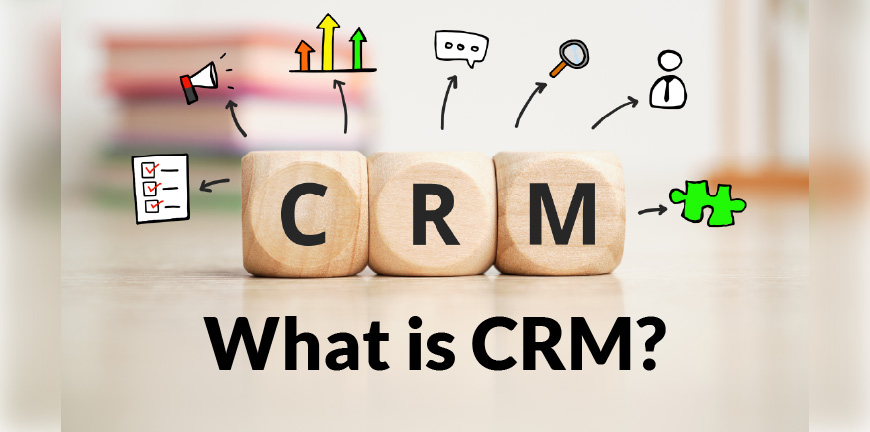
What is CRM Software? A Beginner-Friendly Guide
Introduction
Imagine running a business where every customer feels valued, every conversation is remembered, and every sales opportunity is maximized. Sounds like a dream, right? Well, that dream can become reality with Customer Relationship Management (CRM) software.
In this article, we’ll break down what CRM software is, how it works, and why it’s a game-changer for businesses of all sizes. Plus, we’ll share a step-by-step guide on how to choose the right CRM for your business.
What is CRM Software?

CRM software is a digital tool designed to help businesses manage interactions with their customers and prospects. It centralizes customer information, automates workflows, and enhances communication. This means businesses can improve customer satisfaction, boost sales, and streamline operations—all from one platform.
Think of CRM software as your personal assistant that never forgets a customer's name, past interactions, or preferences. Whether you’re a small startup or a multinational company, a CRM system helps you build and maintain strong customer relationships.
Why is CRM Software Important?
1. Centralized Customer Data
Ever struggled to find an important customer email or phone number? With CRM software, all customer information is stored in one place, accessible to your entire team.
2. Improved Sales and Marketing
CRM tools help businesses track leads, automate follow-ups, and close deals faster. By analyzing customer behavior, companies can send personalized marketing campaigns that drive engagement.
3. Better Customer Support
Customers hate repeating themselves. With CRM software, support teams can access a customer’s history instantly, providing quick and efficient service.
4. Automated Workflows
A CRM can automatically schedule meetings, send emails, and assign tasks—saving time and reducing human error.
5. Data-Driven Decisions
Businesses using CRM solutions can analyze data trends and make informed decisions to boost growth and efficiency.
Types of CRM Software
There are three main types of CRM systems, each serving different business needs:
1. Operational CRM
This type focuses on automation—handling sales, marketing, and customer service tasks to reduce manual work. Popular tools include Salesforce and HubSpot.
2. Analytical CRM
Designed for businesses that want to leverage data and insights to improve decision-making. It helps in tracking customer behavior, forecasting sales, and personalizing experiences.
3. Collaborative CRM
Perfect for teams that need to share customer information across departments. Whether it’s marketing, sales, or support—everyone stays on the same page.
How to Choose the Right CRM for Your Business
Selecting the best CRM software depends on your business goals. Follow this step-by-step guide:
Step 1: Identify Your Needs
Ask yourself:
Do I need automation for sales and marketing?
Do I want detailed analytics and reporting?
Do I require integration with other tools?
Step 2: Consider Scalability
Your business will grow, so choose a CRM solution that can scale with you. Look for cloud-based options like Zoho CRM or Pipedrive.
Step 3: Test User-Friendliness
A complex system can frustrate your team. Look for a CRM tool that’s easy to navigate with an intuitive interface.
Step 4: Check Integration Options
Does it work with your existing software? For instance, if you use Slack for team communication, ensure the CRM integrates seamlessly.
Step 5: Compare Pricing Plans
Many CRM platforms offer free trials, so take advantage of them before committing. Compare pricing and features to find the best value.
Best CRM Software for Businesses in 2025
Here are some of the top CRM tools to consider:
Salesforce – Best for large enterprises.
HubSpot CRM – Great for small businesses and startups.
Zoho CRM – Affordable and feature-rich.
Pipedrive – Best for sales teams.
Zendesk – Ideal for customer service and support.
Monday.com – Best for project and team management.
Copper – Designed for Google Workspace users.
Real-Life CRM Success Story
Let’s take the example of John’s Online Store. John started his e-commerce business selling handmade candles. At first, he managed customer inquiries and orders manually. As his business grew, tracking emails, orders, and customer preferences became overwhelming.
He invested in HubSpot CRM and saw instant improvements. The system tracked customer interactions, automated follow-ups, and even suggested upselling opportunities. Within six months, John’s sales increased by 40% and customer satisfaction soared.
Final Thoughts: Why You Should Invest in CRM Software
If you want to grow your business, improve customer relationships, and boost sales, investing in CRM software is a no-brainer. It simplifies your workflow, ensures better customer engagement, and gives your business a competitive edge.
Ready to find the perfect CRM for your business? Start by exploring free trials of top CRM platforms and experience the difference firsthand.
🔗 Check out the best CRM solutions today and take your business to the next level!


